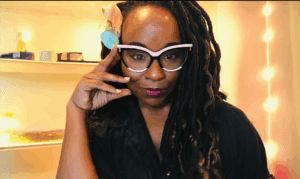After what must seem an eternity, you are graduating from high school. The truth is, your life has barely begun and the steps you take in the next few weeks may well determine your future for the next 60 years or so. (How’s that for pressure?!)
Of all the myriad choices and potential directions you now have, I would like to consider four of these:
1. College – If you decide to go to college, it is vital that important choices be made even before you start. You have heard of the crushing debt encountered by many students and the dim prospects of getting a job afterwards. I don’t want to be unkind but, for many of these students, the problem is bad choices.
If your parents aren’t wealthy, then you have to choose a school within their budget. Don’t be selfish and insist on a certain university. They have supported you for 18 years and you are a man or woman now, so act like it. Your future is your responsibility.
A state college or university will be perfectly fine for your career and costs much less than a private school. And, if you can live at home, you will save bucket loads of cash. You might also try taking the first two years at a junior or community college. Those cost even less and, if you pick your courses wisely, you should finish with an associate’s degree.
You can also work part-time and during the summers and, if you save your money, you might just finish college debt-free. Millions of students do.
There are a bunch of politicians advocating for free college tuition. Don’t bet on that. In case you haven’t learned this fact yet, some politicians will say anything, tell any lie, to get your vote. And nothing is free. Somebody always pays.
Pick a major that will actually allow you to get a job. If you have a B.A., a M.A., and a Ph.D. in Medieval Ukrainian Literature, don’t blame anybody but yourself if you wind up in the unemployment line. Some majors will not help you land a job. Do some research. Find out what jobs will likely be available.
For example, the nursing profession is experiencing a shortage and has for several years. If you graduate and pass the boards to become a registered nurse, you will likely always be employable.
What about getting your associate’s nursing degree from a community college? Well, this is a two-edged sword. If you pass the boards, you can work as an RN while going ahead to get your bachelors. And you will have to get your bachelors degree. Many hospitals are phasing out anything under a BSN and, in any event, your promotion possibilities for the long-term may be limited with an ASN.
Some majors will necessitate your getting graduate degrees to be employable. For example, my undergraduate degree was in social work. With a Bachelor of Social Work degree I was able to work for the state of Tennessee as a caseworker in child protective services. A challenging job to be sure, but, if I had wanted to be a supervisor or go into some sort of practice that would pay a lot more money, it would have been necessary to get a two-year Master of Social Work degree.
A number of professions (law, medicine, theology) require graduate degrees. But you can’t get into these programs if you don’t do well in college.
Some police departments now require a college degree of any type to be considered for the job. If that is the case, then it doesn’t matter what the degree is. In this instance, the department is looking for people who have the smarts and the dedication to stay with a task and work in a challenging position.
I have known law enforcement officers who had degrees in history, English, and even theology. But, if this is your goal, consider a major in criminal justice. All the professions will eventually get more “professional” and standards will increase.
If you want to work in English, history, etc., unless you also get a teaching certificate, you will have to get at least one, maybe two, graduate degrees and, even then, a lot of people have these majors. If you want to teach high school, consider a major in the sciences — chemistry, physics, math, and such. I understand that there are shortages in these areas. Talk to your school guidance counselor.
And one more thing. If you are in college to play, socialize, party all the time, then you are setting yourself up for failure. In 2012, the national average for full-time students at 4-year degree-granting institutions was 59 percent. So, 59 percent of students graduated in 6 years, nationally. That means that 41 percent did not graduate in six years. And if they took on a load of debt, that debt didn’t go away because they dropped out.
A couple of points:
(1) most degree programs now take more than four years, so be prepared. If a student changes majors, has to work, and so forth, it may take longer. That’s perfectly okay. You’re planning for the next 60 years here (and I include your retirement years. How you do in your career largely determines how your retirement will be).
(2) College is serious business. You need to keep your grades up and, if graduate school is in your plans, your GPA has to be higher than you think it does. These slots are competitive. It’s very easy to get sidetracked by the social aspect of college.
Finally, realize that college isn’t for everybody. I know that a great deal of pressure from peers and others can be intense. Some might even try to make you feel like a failure if you don’t see college in your future. But there are other options to building a good, fulfilling life.
What are some of those? Check back next week.
[David Epps is the pastor of the Cathedral of Christ the King, 4881 Hwy. 34 E., Sharpsburg, GA between Newnan and Peachtree City (www.ctk.life). He is the bishop of the Charismatic Episcopal Diocese of the Mid-South which consists of Georgia and Tennessee. He may contacted at [email protected].]













Leave a Comment
You must be logged in to post a comment.